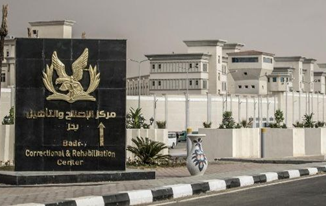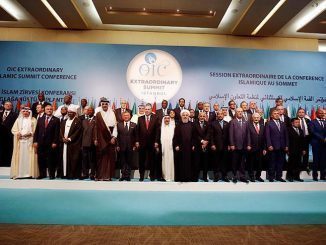
Abdo Fayed, a political researcher specializing in international relations has been arrested in mid-night and forcibly disappeared.
Fayed’s family have said they tried to send telegrams to the attorney general to know Abdo Fayed’s whereabouts but have heard nothing until now.
According to other social media users, Abdo Fayed had made a number of comments on the situation of doctors in Egypt, who have reported they do not have full access to PPE, isolation beds and are being dismissed and threatened if they complain.
Abdo was arrested at the same time as pharmacist Mohamed Helmy Goda, 36, was taken from home in Faisal, Giza, and also forcibly disappeared until now, according to the Freedom Twitter account, which advocates the rights of political prisoners.
It has also been reported that Neveen William, who administered the Facebook group “No to the Suez road toll”, has been arrested.
At the beginning of May, the National Road Company of the Egyptian Army began collecting road tolls on the Cairo-Suez Desert Road which generated anger among the residents of several luxury housing complexes which had to pass through it to leave or return home.
On top of the fact that they face a corrupt justice system in Egypt, where prisoners are tried in mass trials, held on pretrial detention and systematically tortured, the families of the arrested have to contend with the added worry of the coronavirus pandemic.
Throughout the COVID-19 crisis, family members and experts have called on the Egyptian regime to release political prisoners to ease overcrowding in fear the virus would easily spread among prisoners.
Detainees in Egypt are kept in tiny cells many times over their capacity and are forced to share hygiene tools. They are regularly denied medical attention.
Earlier this week Mohamed Ghamry became the eighth Egyptian to die in detention this month after prison authorities failed to tend to his high temperature.
According to the Shehab Centre for Human Rights, Ghamry, who was being held in Belbeis Police Station, had a high temperature and warned that other cellmates have similar symptoms. Rights groups have warned that other detainees are displaying similar symptoms.
Earlier this month the Geneva-based Committee for Justice (CFJ) reported that another detainee at Belbeis Police Station had died from suspected coronavirus.
At the time, CFJ reported that at least four detainees were suffering from COVID-19 symptoms including respiratory distress and high temperature, indicating prison authorities are not taking appropriate measures to protect or test them.
Detainee Ibrahim Mohamed Al-Daleel Okasha also died earlier this month in a hospital in Sharqiyah Governorate after being transferred there from Hahya Police Station. Ibrahim had a high temperature, a severe cough and suffered severe respiratory distress.
CFJ said authorities have failed to reveal the true cause of his death.
On 2 May Egyptian filmmaker Shady Habash died in Tora Prison after his health deteriorated and he was not given medical help.
The circumstances under which these detainees died contrasts starkly with authorities’ decision to release 3,000 prisoners this weekend under an Eid presidential pardon, including those that had been jailed for theft, prostitution and fraud.
Politicians from across the world have been putting pressure on the regime to release Egypt’s 60,000 political prisoners to ease overcrowding amid the coronavirus pandemic.
Detainees are kept in overcrowded cells, have little access to sunlight and fresh air and often have to share hygiene tools. Since the start of the covid pandemic they have been denied visits from lawyers and family members.
At the beginning of May, US Secretary of State Mike Pompeo urged Egypt to keep American citizens in prison safe during the pandemic.
In March Ilhan Omar and Rashia Tlaib were among eight members of Congress who wrote a letter to the US-Egypt ambassador to draw attention to the dire plight of Egyptian political prisoners.
In January Mustafa Kassem became the first American citizen to die in Egyptian prison from medical negligence.
On Wednesday Egypt’s Health Ministry reported 910 new coronavirus infections, its highest single day figure recorded so far since it announced its first case on 14 February.
Egypt’s Sisi pardoned some 3,000 prisoners on Eid, but did not include political prisoners on the list. Among those released was the former policeman Mohsen Al-Sukkari who killed a Lebanese pop singer in 2008 on the orders of business mogul Hisham Talaat Mustafa.



